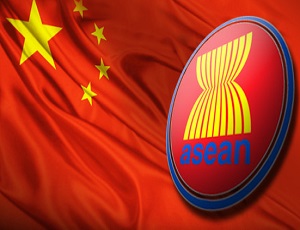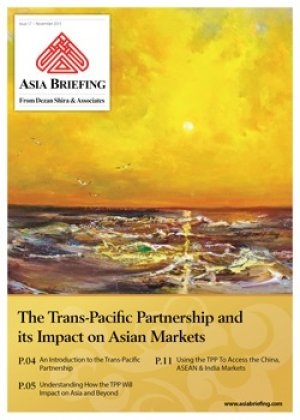South China Sea Arbitration Implications on ASEAN Investors: an Overview
By Marquise Clarke
 In a landmark case, the Hague’s Permanent Court of Arbitration delivered a unanimous decision earlier this month supporting the Philippines in its territorial dispute with China over part of the South China Sea. The case brought by the Philippines was the first time the Chinese government had been brought before an international court.
In a landmark case, the Hague’s Permanent Court of Arbitration delivered a unanimous decision earlier this month supporting the Philippines in its territorial dispute with China over part of the South China Sea. The case brought by the Philippines was the first time the Chinese government had been brought before an international court.
Many companies and investors within ASEAN are naturally waiting to see what impact the case might have on relations between the economic bloc and China, if any. However, while the South China Sea decision has instigated a series of negative effects which might be felt in the short-term, these are widely expected to be manageable, with long-term effects minimal.
The Politics of Economics and Trade in Southeast Asia
China
On a variety of fronts, China has found itself conflicted with existing international institutions and norms. In recent years the country has objected to global climate initiatives and the promotion of the Asian Development Bank, and it is increasingly clear that the Middle Kingdom is unafraid of allowing these conflicts to escalate. Disputes in the South China Sea are another such example, albeit of a very different nature.
While the South China Sea disputes help to assert Chinese influence militarily, they naturally ostracize many key trading partners – significant assets in China’s mission to solidify its economic presence within the region. Although The Hague ruling is unlikely to threaten existing trade flows, the manner in which future conflicts are resolved will play a significant role in the ability of China to promote economic cooperation. Most significant in this respect is the Regional Comprehensive Economic Partnership (RCEP) – a key response to the U.S.’s TPP.
 RELATED: Understanding the Geopolitics of the South China Sea Dispute
RELATED: Understanding the Geopolitics of the South China Sea Dispute
ASEAN
For ASEAN, the South China Sea disputes have tested the collaborative strength of the region. Many different ASEAN members are at odds with one another concerning how conflicts in the sea should be approached, with some more closely allied with China than others.
Internally within ASEAN, however, it is highly unlikely that the bloc’s disjointed response to the dispute will spread into current economic arrangements. The trading relationship within ASEAN is cemented through negotiations on the ASEAN Economic Community (AEC), and this will not change.
Third Parties
Apart from China and ASEAN, the South China Sea dispute has also increased the already public tension between the U.S. and China. Many countries in ASEAN have publically declared their interest in signing the U.S.’s Trans-Pacific Partnership (TPP), and this interest would likely intensify should China choose to sever ties with any of ASEAN’s members.
Economic Relations between China and ASEAN
Many different industries in ASEAN are dependent on Chinese imports, meaning any stop in trade relations between the two would have an immediate effect.
In recent years, China has actively pushed for economic and trade cooperation with Southeast Asia through a number of different vehicles, with the China-ASEAN Free Trade Area (ACFTA), RCEP, and the 21st Century Maritime Silk Road being three prime examples. While these efforts have done little to alleviate tensions in the South China Sea, they are indicative of how important ASEAN and China view one another as trading partners.
Looking Ahead
In the long-term, it is expected that trade relations between ASEAN and China will not substantially deteriorate, with RCEP and, to a lesser extent, ACFTA playing important roles. In the short-term, cooperation between ASEAN and China will likely be strained, but certainly will not cease.
|
Asia Briefing Ltd. is a subsidiary of Dezan Shira & Associates. Dezan Shira is a specialist foreign direct investment practice, providing corporate establishment, business advisory, tax advisory and compliance, accounting, payroll, due diligence and financial review services to multinationals investing in China, Hong Kong, India, Vietnam, Singapore and the rest of ASEAN. For further information, please email asean@dezshira.com or visit www.dezshira.com. Stay up to date with the latest business and investment trends in Asia by subscribing to our complimentary update service featuring news, commentary and regulatory insight. |
Annual Audit and Compliance in ASEAN
For the first issue of our ASEAN Briefing Magazine, we look at the different audit and compliance regulations of five of the main economies in ASEAN. We firstly focus on the accounting standards, filing processes, and requirements for Indonesia, Malaysia, Thailand and the Philippines. We then provide similar information on Singapore, and offer a closer examination of the city-state’s generous audit exemptions for small-and-medium sized enterprises.
 The Trans-Pacific Partnership and its Impact on Asian Markets
The Trans-Pacific Partnership and its Impact on Asian Markets
The United States backed Trans-Pacific Partnership Agreement (TPP) includes six Asian economies – Australia, Brunei, Japan, Malaysia, Singapore and Vietnam, while Indonesia has expressed a keen willingness to join. However, the agreement’s potential impact will affect many others, not least of all China. In this issue of Asia Briefing magazine, we examine where the TPP agreement stands right now, look at the potential impact of the participating nations, as well as examine how it will affect Asian economies that have not been included.
 An Introduction to Tax Treaties Throughout Asia
An Introduction to Tax Treaties Throughout Asia
In this issue of Asia Briefing Magazine, we take a look at the various types of trade and tax treaties that exist between Asian nations. These include bilateral investment treaties, double tax treaties and free trade agreements – all of which directly affect businesses operating in Asia.
- Previous Article Brexit: cosa cambia per gli investitori dell’area ASEAN?
- Next Article The Guide to Corporate Establishment in Myanmar









